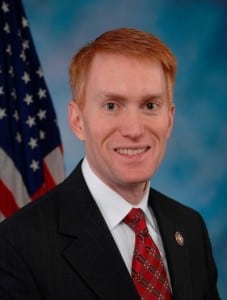
A bipartisan group of Senators introduced legislation Thursday to improve voting system cyber security efforts meant to prevent future election interference.The Secure Elections Act, sponsored by Sen. James Lankford (R-Okla.), sets new guidelines for cyber threat information sharing between State officials and the Department of Homeland Security, establishes an advisory panel to oversee election security guidelines, and creates a grant program to upgrade voting infrastructure.The bill, co-sponsored by Sens. Amy Klobuchar (D-Minn.), Kamala Harris (D-Calif.), Susan Collins (R-Maine), Martin Heinrich…

 By
By 








